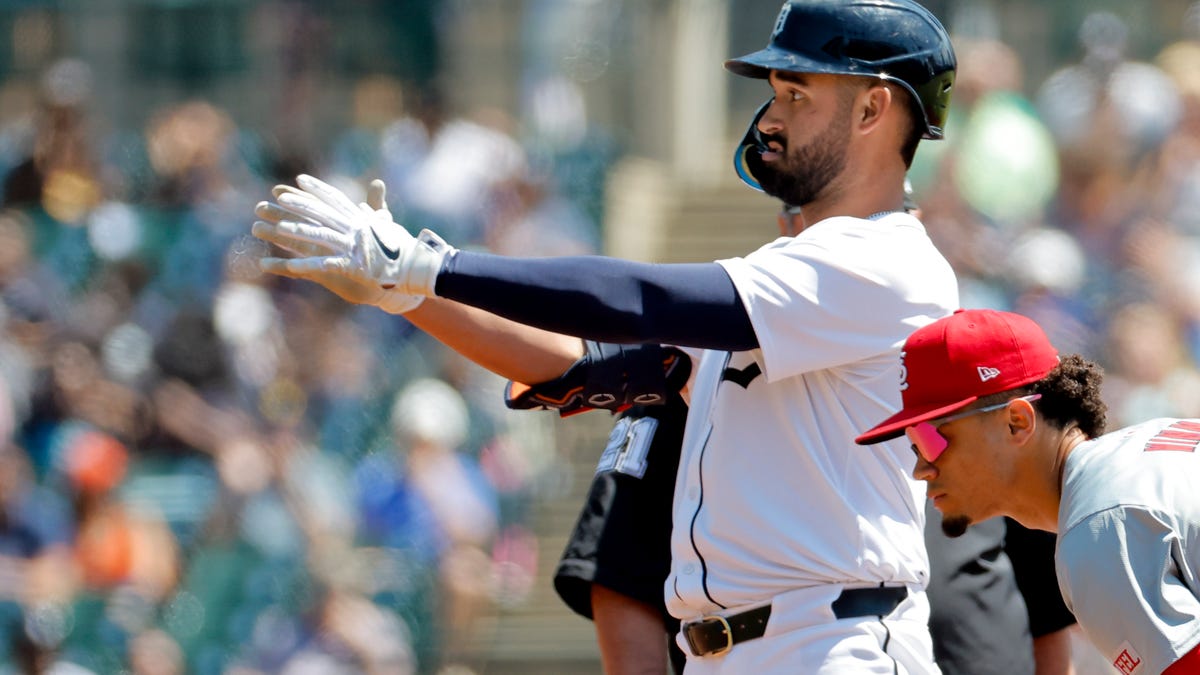Entertainment
L.A. Times Book Prize winners named in a ceremony filled with support for USC valedictorian Asna Tabassum
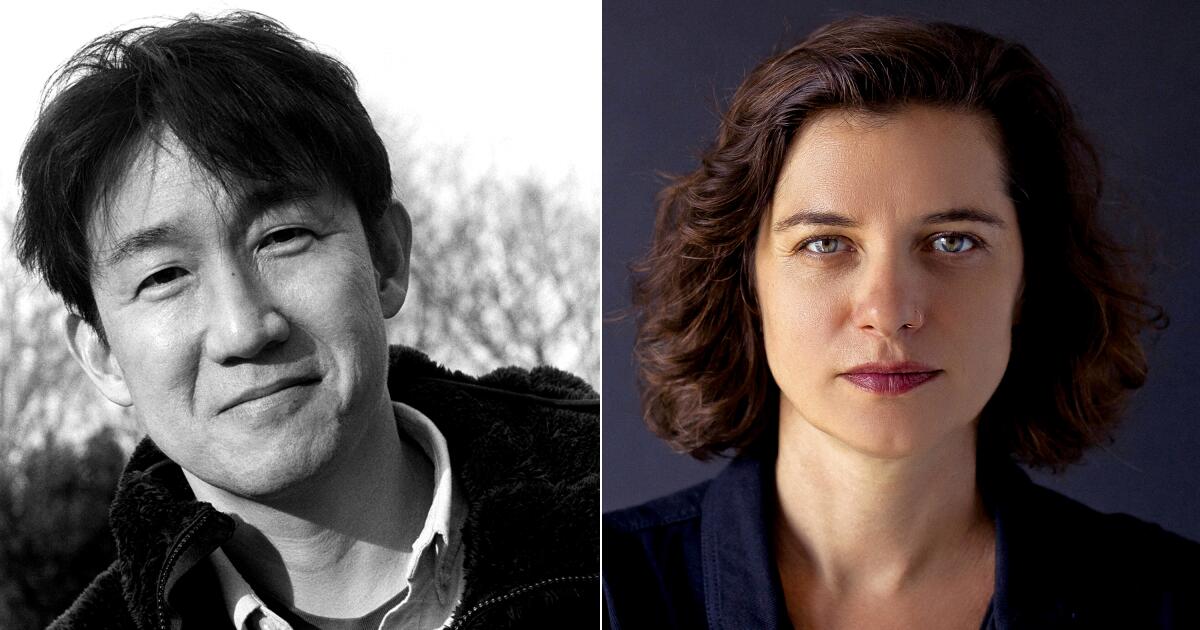
The spotlight shined on great literature Friday night at the 44th Los Angeles Times Book Prizes ceremony at USC’s Bovard Auditorium, where 13 winners took the stage to celebrate their honors and, in some cases, call attention to the free speech controversy unfolding on campus.
A political undercurrent ran through the night’s speeches following the university’s cancellation of a commencement speech by pro-Palestinian valedictorian Asna Tabassum. Emily Carroll, who won the Book Prizes’ graphic novel/comic category, ended her speech by calling on USC to restore Tabassum’s appearance, “so that she may inspire her community of peers with, as she’s put it, her ‘message of hope.’ Also, I would like to express my own solidarity with Asna and also my solidarity with Palestine.”
Applause drowned out Carroll’s words at times. Later, Tananarive Due, who won for science fiction, fantasy and speculative fiction, used her speech to add: “As we face the horrors in our in our cities, in Gaza and elsewhere, and witness true-life racism, homophobia, Islamophobia and antisemitism, let us honor the courage of young people.” They, Due said, have been the drivers of change throughout history.
Upon accepting the award for the current interest category, Roxanna Asgarian added her support for Tabassum. “She earned her right to speak,” Asgarian said. “Let her speak.” Amber McBride, who won for young adult literature concluded her speech by saying, “Free Palestine.”
The focus for the rest of the evening were the books themselves — more than 60 finalists plus three special honors. Jane Smiley accepted the Robert Kirsch Award for lifetime achievement, which pays tribute to a writer with a substantial connection to the American West. The L.A.-born author, who won the Pulitzer Prize for fiction in 1992 for her novel “A Thousand Acres,” gave a brief, heartfelt speech, noting, “I love to write novels, I love to go for walks and look around. And I think the greatest pleasure of the novelist’s life is curiosity.”
Claire Dederer received the Christopher Isherwood Prize for Autobiographical Prose for “Monsters: A Fan’s Dilemma.”
“‘Monsters,’ a book-length expansion of an essay on the problematic relationship between masculinity and fame, considers how we come to love art made by less than perfect humans,” read the selection committee’s praise. “Dederer engages the essayist form at its best and the result is both critical, literary and provocative.”
“These are really, really dark days,” said Dederer, accepting the award. “And I’m so grateful for this bright moment.”
The final special honor went to Access Books, which received the Innovator’s Award for its work renovating school libraries to enhance access to books and literary resources for underserved students and communities.
This year’s Book Prizes featured a new category:achievement in audiobook production. That award, which honors performance, production and innovation in storytelling — given in collaboration with Audible — went to Dion Graham and Elishia Merricks for “Thank You (Falettinme Be Mice Elf Agin): A Memoir.” The judges noted Graham’s “transcendent” narration of musician Sly Stone’s “percussive and almost musical writing” in his memoir.
Ed Park’s novel “Same Bed Different Dreams” took the fiction prize. The selection committee singled it out for being “as playful as it is moving, as serious as it is otherworldly and as funny as it is intellectually stimulating.”
The Art Seidenbaum Award for First Fiction went to Shannon Sanders’ debut, “Company: Stories,” which features 13 stories that follow the lives of a multi-generational Black family from the 1960s to the 2000s in cities including Atlantic City, N.J., New York and Washington, D.C. “The prose is magnificent, mature and breathtakingly precise, and the collection resounds with a sensitivity and wisdom rarely seen in a debut,” noted the judges.
Gregg Hecimovich won for biography with “The Life and Times of Hannah Crafts: The True Story of The Bondwoman’s Narrative,” about a slave who escaped from a Southern plantation and spent the rest of her life evading capture. The book was chosen out of more than 100 entries, with the selection committee writing, “Through Hecimovich’s painstaking historical detective work and keen literary analysis, the reader is rewarded with a captivating and vivid portrait of a life once stolen by enslavers and long robbed of recognition. This is at once a startling and original work.”
Carroll won for “A Guest in the House,” an adult horror story about a woman who marries a dentist and discovers there is a mystery to be solved when it comes to the death of his former wife. “A fleshy, sensuous journey that pushes the limits of the medium in ways that only Carroll can. A skin-crawling gem, not to be missed,” wrote the selection committee.
Joya Chatterji took home the prize for history with “Shadows at Noon: The South Asian Twentieth Century,” which limns the region’s trajectory from British colony to three complex, independent nations.
The mystery/thriller award went to Ivy Pochoda for “Sing Her Down.” The unique nail-biter takes place in the shadows of L.A.’s homeless camps, run-down motels and dark alleys, following women who have turned — for various reasons — to a life of crime. The judges, including Alex Segura, Wanda Morris and mystery fiction critic Oline Cogdill, wrote, “Pochoda brilliantly explores her characters and this setting, while sifting through myriad literary tropes, including allusions to Macbeth, mythology, even a bit of a Greek chorus.”
Airea D. Matthews’ “Bread and Circus” was honored in the poetry category. Matthews is an associate professor of creative writing and the co-director of the creative writing program at Bryn Mawr College. She was named the 2022-23 poet laureate of Philadelphia.
The prize for science fiction fiction was given to Due for “The Reformatory.” The book is part horror, part historical fiction in its examination of life under Jim Crow law in the South.
Eugenia Cheng’s “Is Math Real? How Simple Questions Lead Us to Mathematics’ Deepest Truths” nabbed the prize for science & technology, with the judges writing, “Beginning with a dedication to readers who think math isn’t for them, Cheng shows us that not only is math for all of us, but so is the act of searching for meaning in shapes, patterns and symbols that simultaneously seem like they have nothing to do with us and also everything to do with who we are as a species.”
Cheng uttered perhaps the most helpful line to all the writers in the room, noting to applause, “If you have ever been made to feel bad at math, you didn’t fail math, math failed you.”
The story of a 12-year-old blue-skinned girl called Inmate Eleven who is being groomed to be a partner to a white-skinned teen clone, and future president of Bible Boot, is the plot of McBride’s “Gone Wolf,” which won for young adult literature. “McBride mixes American history with speculative fiction to dissect melancholia and political anxiety for young people who are living through uncertain times — in the future and today,” wrote the judges.
The full list of finalists and winners is below.
Achievement in Audiobook Production
Maria Bamford, narrator, “Sure, I’ll Join Your Cult: A Memoir of Mental Illness and the Quest to Belong Anywhere”
Sophia Bush, narrator, “Wild and Precious: A Celebration of Mary Oliver”
Helena de Groot, lead producer, “Wild and Precious: A Celebration of Mary Oliver”
Dion Graham, narrator, “Thank You (Falettinme Be Mice Elf Agin): A Memoir”
Kerri Kolen, executive producer, “Wild and Precious: A Celebration of Mary Oliver”
Helen Laser, narrator, “Yellowface”
Adam Lazarre-White, narrator, “All the Sinners Bleed”
Elishia Merricks, producer, “Thank You (Falettinme Be Mice Elf Agin): A Memoir”
Elishia Merricks, producer, “All the Sinners Bleed”
Suzanne Franco Mitchell, director/producer, “Yellowface”
The Art Seidenbaum Award for First Fiction
Stephen Buoro, “The Five Sorrowful Mysteries of Andy Africa: A Novel”
Sheena Patel, “I’m a Fan: A Novel”
Shannon Sanders, “Company: Stories”
James Frankie Thomas, “Idlewild: A Novel”
Ghassan Zeineddine, “Dearborn”
Biography
Leah Redmond Chang, “Young Queens: Three Renaissance Women and the Price of Power”
Gregg Hecimovich, “The Life and Times of Hannah Crafts: The True Story of The Bondwoman’s Narrative”
Jonny Steinberg, “Winnie and Nelson: Portrait of a Marriage”
Elizabeth R. Varon, “Longstreet: The Confederate General Who Defied the South”
David Waldstreicher, “The Odyssey of Phillis Wheatley: A Poet’s Journeys Through American Slavery and Independence”
The Christopher Isherwood Prize for Autobiographical Prose
Claire Dederer, “Monsters: A Fan’s Dilemma”
Current Interest
Bettina L. Love, “Punished for Dreaming: How School Reform Harms Black Children and How We Heal”
Roxanna Asgarian, “We Were Once A Family: A Story of Love, Death, and Child Removal in America”
Zusha Elinson, “American Gun: The True Story of the AR-15”
Cameron McWhirter, “American Gun: The True Story of the AR-15”
Christina Sharpe, “Ordinary Notes”
Raja Shehadeh, “We Could Have Been Friends, My Father and I: A Palestinian Memoir”
Fiction
Susie Boyt, “Loved and Missed”
Yiyun Li, “Wednesday’s Child: Stories”
Elizabeth McKenzie, “The Dog of the North: A Novel”
Ed Park, “Same Bed Different Dreams: A Novel”
Justin Torres, “Blackouts: A Novel”
Graphic Novel/Comics
Derek M. Ballard, “Cartoonshow”
Matías Bergara, “CODA”
Emily Carroll, “A Guest in the House”
Sammy Harkham, “Blood of the Virgin”
Chantal Montellier, “Social Fiction”
Simon Spurrier, “CODA”
History
Ned Blackhawk, “The Rediscovery of America: Native Peoples and the Unmaking of U.S. History”
Joya Chatterji, “Shadows at Noon: The South Asian Twentieth Century”
Malcolm Harris, “Palo Alto: A History of California, Capitalism, and the World”
Blair L.M. Kelley, “Black Folk: The Roots of the Black Working Class”
Nikki M. Taylor, “Brooding Over Bloody Revenge: Enslaved Women’s Lethal Resistance”
Innovator’s Award
Access Books
Mystery/Thriller
Lou Berney, “Dark Ride: A Thriller”
S. A. Cosby, “All the Sinners Bleed: A Novel”
Jordan Harper, “Everybody Knows: A Novel”
Cheryl A. Head, “Time’s Undoing: A Novel”
Ivy Pochoda, “Sing Her Down: A Novel”
Poetry
K. Iver, “Short Film Starring My Beloved’s Red Bronco”
Airea D. Matthews, “Bread and Circus: Poems”
Maggie Millner, “Couplets: A Love Story”
Jenny Molberg, “The Court of No Record: Poems”
Simon Shieh, “Master: Poems”
Robert Kirsch Award
Jane Smiley
Science & Technology
Eugenia Cheng, “Is Math Real? How Simple Questions Lead Us to Mathematics’ Deepest Truths”
Jeff Goodell, “The Heat Will Kill You First: Life and Death on a Scorched Planet”
Jaime Green, “The Possibility of Life: Science, Imagination, and Our Quest for Kinship in the Cosmos”
Caspar Henderson, “A Book of Noises: Notes on the Auraculous”
Zach Weinersmith, “A City on Mars: Can We Settle Space, Should We Settle Space, and Have We Really Thought This Through?”
Kelly Weinersmith, “A City on Mars: Can We Settle Space, Should We Settle Space, and Have We Really Thought This Through?”
Science Fiction, Fantasy & Speculative Fiction
Tananarive Due, “The Reformatory: A Novel”
Daniel Kraus, “Whalefall”
Victor LaValle, “Lone Women: A Novel”
V. E. Schwab, “The Fragile Threads of Power”
E. Lily Yu, “Jewel Box: Stories”
Young Adult Literature
Jennifer Baker, “Forgive Me Not”
Olivia A. Cole, “Dear Medusa”
Kim Johnson, “Invisible Son”
Amber McBride, “Gone Wolf”
Sarah Myer, “Monstrous: A Transracial Adoption Story”

Movie Reviews
Sabari Movie Review: Varalaxmi Proves She Can Do Female Centric Roles
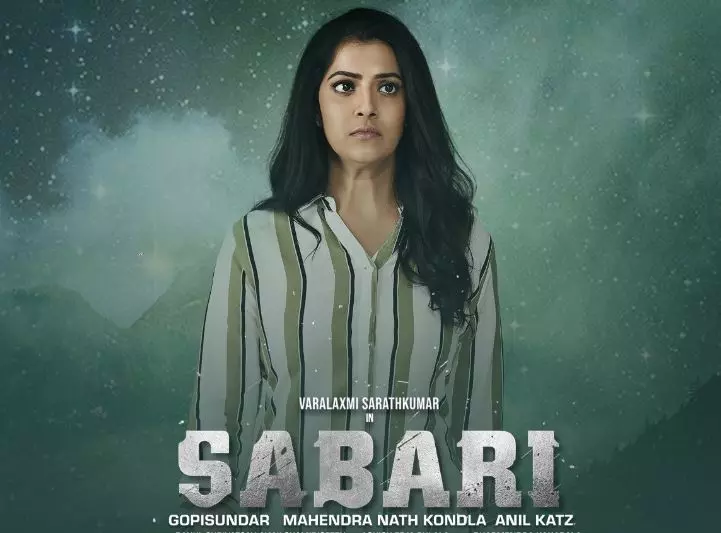
Sabari, starring Varalaxmi Sarathkumar and directed by Anil Katz. The film hit theatres today.
What is it about?
The film follows Sanjana (Varalaxmi Sarathkumar), a single mother whose world is turned upside down when a horrifying truth comes to light: the child she raised is not her biological daughter.
Plot:
The story begins with a twisted past, revealing a villain, Mime Gopi, who escaped a mental asylum with an obsession—finding the daughter he believes was swapped. This sets him on a violent collision course with Sanjana, who will stop at nothing to protect the child she has loved and raised as her own.
Sabari showcases the unwavering bond between a mother and child. As a single parent navigating the challenges of a broken marriage, Sanjana embodies strength and determination.
The movie appears like a psychological horror- thriller at first. While watching the first half, the film comes across a female led emotional thriller where the single parent appears to be going through hardships. Everything goes for a toss in the second half. It is in the second half that the film becomes an irreparable mess. The plot turns are created or arranged in a way that seems unrealistic and artificial.
Verdict: The screenplay of Sabari is far-fetched and the climax is so old that you will not believe this is a film made in 2024. However, Varalaxmi Sarathkumar has delivered a terrific performance.
Rating: 2.75/5
Entertainment
Dua Lipa is a pop star with no lore on 'Radical Optimism'

Dua Lipa’s “Radical Optimism” has a hilarious album cover, two songs about illusionists and what may end up the year’s most succulent bass playing. What it doesn’t have is the kind of detailed celebrity meta-narrative that’s come to define — and to propel — the superstar pop LP in music’s parasocial age.
The 28-year-old London-born singer might disagree: On the cusp of her Saturn return, Lipa has been talking up her third studio album as a meditation on hard-won emotional maturity à la Ariana Grande’s “Eternal Sunshine” or Kacey Musgraves’ “Deeper Well.” “Radical optimism in the way that I see it,” she told Zane Lowe, “is this idea of rolling with the punches.” The LP’s cover shows her bobbing in the sea dangerously close to a shark’s fin, and I guess the shark represents the punches?
Yet because Lipa’s lyrics are very bad — “If these walls could talk, they’d tell us to break up,” she sings at one point — this concept doesn’t really come together. And, besides, a quest for emotional maturity really misses the whole point of Dua Lipa, which is being coolly above it all in the pursuit of earthly pleasure. Her celebrity lore, to the extent that it exists, revolves around her identity as the Vacanza Queen, as she’s known on social media thanks to her fabulous Instagram photo dumps.
So “Radical Optimism” raises an interesting question: In this era of the endlessly annotated “The Tortured Poets Department” — not to mention the downright scholarly “Cowboy Carter” — can a pop album succeed without functioning as a referendum on fame or as a work of musicology? Is it enough just to deliver a bunch of loosely connected bangers and bops?
At its best, “Radical Optimism” answers yes — or at least makes you want the answer to be yes. Lipa has style and attitude to spare; her singing is sly, throaty, slightly Bond-girl conspiratorial. Working with a crafty studio team led by Andrew Wyatt (who co-wrote and co-produced Lipa’s “Barbie” smash “Dance the Night”) and Tame Impala’s Kevin Parker, she fills these 11 songs with a wonderful array of sounds and textures: tick-tocking drums, silky guitars, synths that sparkle and growl. And those bass lines! Truly nasty stuff.
Despite Lipa’s proclamation in a recent interview with The Times that she’d moved away from disco, the album is firmly rooted on the dance floor, though it does lean more toward live instrumentation than 2020’s Grammy-winning “Future Nostalgia.” “These Walls” is a shimmering soft-rock jam with echoes of Fleetwood Mac, while “Anything for Love” starts out as a spare piano ballad before blossoming into chewy, “Off the Wall”-ish funk.

The cover of Dua Lipa’s “Radical Optimism.”
(Warner Music)
The songs are about learning to understand the limits of romance. But we know so little about Lipa’s personal life as compared to Grande’s or Taylor Swift’s, for instance, that her comically dull revelations carry no charge. Here’s how she describes arriving at a state of post-breakup acceptance in “Happy for You”:
Late on a Tuesday, I saw your picture
You were so happy, I could just tell
She’s really pretty, I think she’s a model
Baby, together you look hot as hell
On the other hand, there’s something deeply refreshing about the opportunity “Radical Optimism” offers to ignore all the superstar mythologizing and simply take in Lipa’s music as theater — to savor its energy and color the way we once did ABBA, to name one clear influence from a time when music made far more room for fantasy. (See also: Tori Kelly’s “Tori,” a vivid and inviting new pop album that exists almost entirely outside the celebrity-industrial complex.)
None of the singles from “Radical Optimism” have burned up the charts yet: “Illusion,” the album’s latest, sits at No. 78 this week on Billboard’s Hot 100, while “Houdini” fell off the tally after only a few months — a startlingly short run given the year-plus Lipa clocked with “Levitating” and “Don’t Start Now.” But those songs came before the full footnote-ification of pop that arguably began with Swift’s so-called Taylor’s Versions of her old albums. Now everything is a text to be scrutinized, whether the work can bear it or not.
Movie Reviews
Movie Review: The Fall Guy – CinemaNerdz
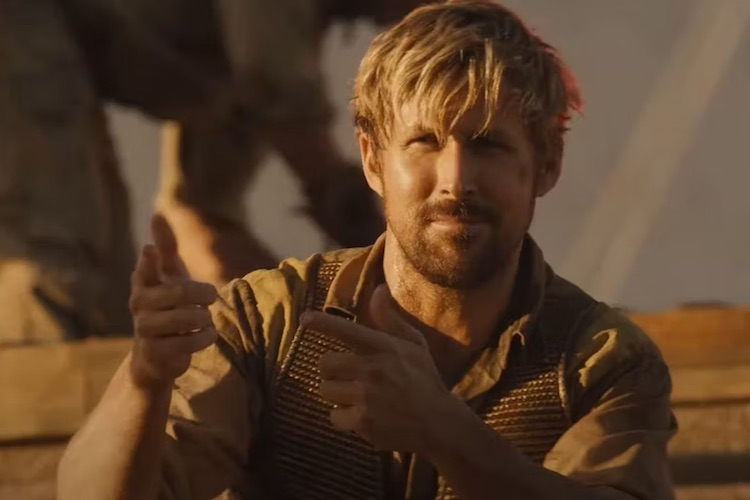
Based on the television show of the same name that ran for five seasons from 1981-86 and starred Lee Majors and Heather Thomas, director David Leitch’s new film, The Fall Guy, employs the same combination of action and sexual tension that fueled the show (albeit not necessarily between the two main characters). This approach makes for an entertaining and somewhat nostalgic aura around a film that, if approached a different way, could have resulted in another disappointing cinematic adaptation of a popular television property.
Colt Seavers (Ryan Gosling) is a stuntman at the top of his game. He is performing death-defying stunts alongside his wannabe director girlfriend Jody (Emily Blunt) until one stunt goes awry and a severely injured Colt all but retires from the profession. That is, until his services are requested on the film that his now ex-girlfriend Jody is making her directorial debut with. The prospect of making peace with her entices him to take up the mantle of stuntman again. When he gets on set however, he quickly learns that there is more to his emerging from retirement than simply performing a few stunts as the star of Jody’s film (played by Aaron Taylor-Johnson) has disappeared and the film’s producer Gail Meyer (Hannah Waddingham) enlists Colt to track him down and bring him back to set. Of course, this is easier said than done and Colt soon finds himself embroiled in a conspiracy that could derail not only his reconciliation with Jody, but her career as well.
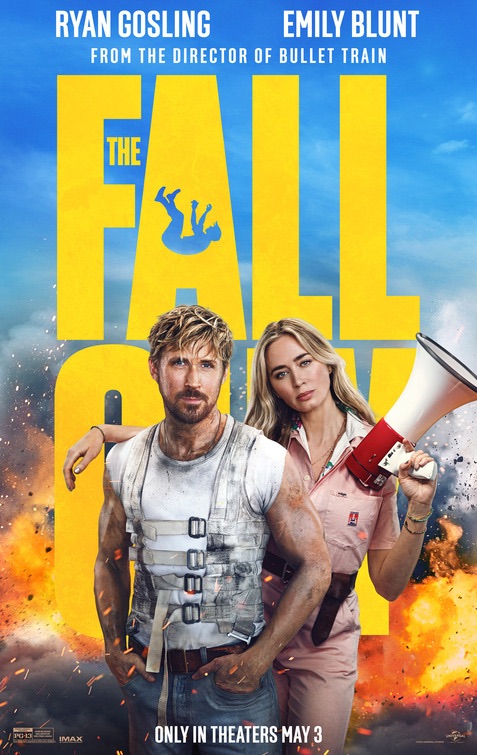
Like he has done with films like Bullet Train (2022) and Deadpool 2 (2018), director David Leitch shows off his ability to deliver action sequences that invigorate a rather tepid plot (as in the case of Bullet Train), but also showcase a well-written story centered around a likable character played by a charismatic actor (i.e. Deadpool 2). Working from a script by Drew Pearce (whom he collaborated last with making 2019’s Fast & Furious Presents: Hobbs & Shaw), Leitch embraces the entertainment value of the original property without resorting to a camp approach as have many other television adaptations. What emerges is an action/adventure piece with a legitimate mystery for the hero to solve while simultaneously trying to get his life back on track.
As Colt, Gosling does a fine job of blending the character’s natural suave demeanor with the uncertainty he is facing during this crossroads moment of his life path. Likewise, Blunt is equally capable as the talented filmmaker who is unsure exactly why her former flame has shown up on her set after so much time away. Taylor-Johnson embraces the bombastic nature of his character as a spoiled star too used to getting his way.


Ryan Gosling in “The Fall Guy.”
Nods to the original television show, courtesy of David Scheunemann’s production design, including Colt’s iconic truck, prove a welcome and non-distracting homage to the series. Along with Leitch’s use of movement to capture the action sequences, the editing provided by Elísabet Ronaldsdóttir allows the film’s action sequences to move along at a brisk and well-paced speed.
The nostalgic and non-ironic adaptation of the television series The Fall Guy allows the film to stand on its own apart from its namesake property (although there is a cameo at the end of the credits featuring original stars of the series) and exist as its own successful action/adventure film.
-

 News1 week ago
News1 week agoLarry Webb’s deathbed confession solves 2000 cold case murder of Susan and Natasha Carter, 10, whose remains were found hours after he died
-

 World1 week ago
World1 week agoHaiti Prime Minister Ariel Henry resigns, transitional council takes power
-

 News1 week ago
News1 week agoFirst cargo ship passes through new channel since Baltimore bridge collapse
-

 World1 week ago
World1 week agoUS secretly sent long-range ATACMS weapons to Ukraine
-

 World1 week ago
World1 week agoSpanish PM Pedro Sanchez suspends public duties to 'reflect'
-

 News1 week ago
News1 week agoAmerican Airlines passenger alleges discrimination over use of first-class restroom
-

 Movie Reviews1 week ago
Movie Reviews1 week agoHumane (2024) – Movie Review
-

 Education1 week ago
Education1 week agoVideo: Johnson Condemns Pro-Palestinian Protests at Columbia University

